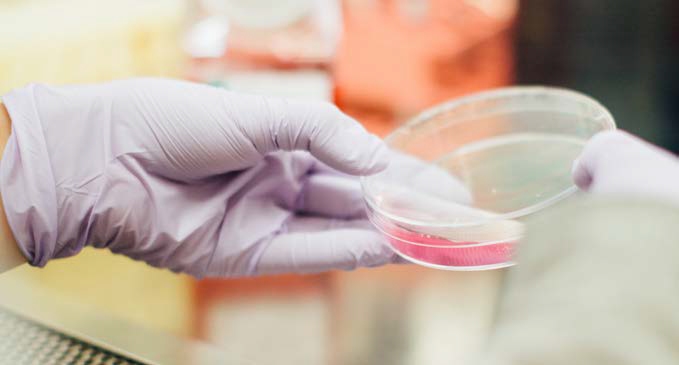Savior In Your Gut

A recent finding has declared gut bacteria be effective in battling cancer.
By Asiya Nayeem

It’s almost time to take a break from frowning and curling your forehead at the mention of the detested word: bacteria. A recent study linked the success of immunotherapy drugs to the diversity of gut microbiomes. The research, which was carried out at the Babraham Institute in Cambridge, UK, proved the influence of a healthy diet and gut bacteria on the rest of the body. It was only recently that scientists discovered the multiple advantages of microorganisms that reside in our bodies. This seminal discovery further contributed to bettering and refining cancer therapy methods and has also pinpointed key elements within the body that strengthen and weaken the immune system.
Micro Size but Macro Importance
While we usually tag bacteria as a negative organism, it would be surprising to know that our body contains an ecosystem of microorganisms that are essential to ensure the smooth functioning of the human body. Microbiomes are part of every human tissue and biofluid, and in each part of the body, they play a large role in protecting and creating a defense system against any disease-carrying microbody that may enter the body. This microbe ecosystem provides a living barrier, a defense to our body’s immune system, warding off any harm. In the gut particularly, the role of these microorganisms is to assist the body in the breakdown and absorption of nutrients. If this ecosystem did not exist, the digestion process would not have been possible and we would not be capable of extracting or absorbing the necessary nutritional compounds needed for our daily functioning. Besides nutritional extraction, gut bacteria also help in stabilizing the pH levels in the stomach.
The gut bacteria, otherwise called gut flora, play a larger role in our bodily ecosystem than we can fathom. It has been noted that these microorganisms have an influence on the development of cancer in our body. Studies have shown that the diet we follow can change the makeup of microbiomes, which can help the body in its fight against cancer, and even improve the effectiveness of cancer therapy to get rid of the cancerous tissues in the body. But if we have an extensive network of microbiomes in our body, why isn’t cancer therapy as effective on every patient? The answer to this allows us to understand why certain treatments prove to be more efficacious than the rest.
Antibiotics Vs Gut Bacteria
Another study has revealed how antibiotics negatively affect microbiomes in the body, which then make cancer therapy obsolete. While antibiotics help in suppressing and fighting infections that target our bodies in a short time, their long-term effects are shockingly harmful. Antibiotics, once they enter the body, affect the structure and makeup of the microbiomes, disrupting the way they function, such as nutrient supply, vitamin production, and protection from pathogens. In cancer patients who undergo immunotherapy, which includes the intake of drugs that influence and work against the cancerous tissues, the microbiomes in the body aid in boosting the effectivity of therapy. This means that cancer patients who have been exposed to antibiotics in the past have damaged microbiomes and thus, therapy is less likely to prove successful in them than in those who have had a lesser intake of antibiotics.
The gut bacteria, also called gut flora, play a larger role in our bodily ecosystem than we can fathom.
The Role of Gut Flora
The research from the Babraham Institute has illustrated the role of gut bacteria in the development of colorectal cancer and various infections. The study further reveals how bacteria in the gut could control genes in our cells and impact both the gut and the complex human body.
It was found that chemicals produced by the gut flora could affect the genes in the body. These molecules, called short-chain fatty acids, trigger processes that change gene activity. They increase the number of crotonylation by shutting down a protein called HDAC2. Crotonylation is a chemical marker that is involved in RNA processing, nucleic acid metabolism, chromosome organization, and gene expression. Other research has shown that an increase in HDAC2 can be linked to an increased risk of colorectal cancer and so, by shutting down HDAC2, there could be a significant decrease in tumor rates in the body.

Many researchers have lauded this finding as a path-breaker in cancer research. The study makes it possible to develop new treatment methods for cancer patients, keeping in mind the large role of these microbiomes.
By understanding that regulating crotonylation in the genome of gut cells is important for preventing cancer, researchers can further look at microbiome manipulation and use this information to make cancer therapy more fruitful. Moreover, the research reiterates what we already know: that the intake of a healthy diet can ultimately regulate and prevent diseases.
So the next time you think of quenching your hunger with quick-fix junk, pause a second and think of all the goodness your gut deserves.
















